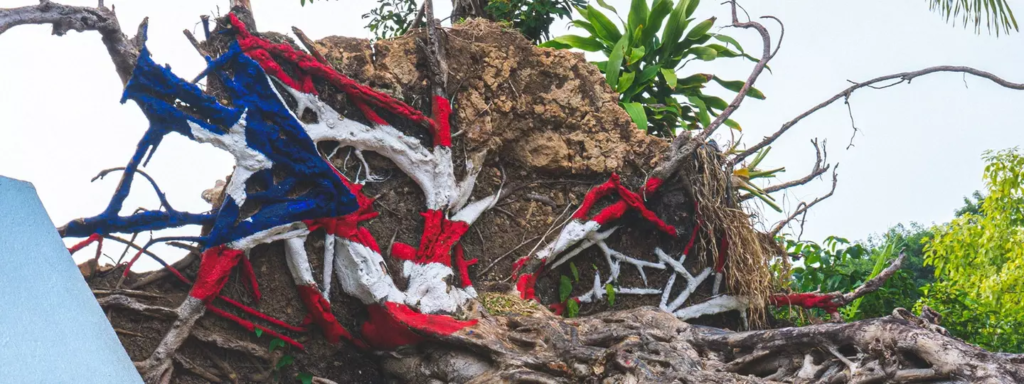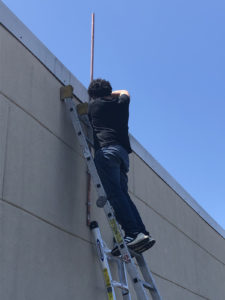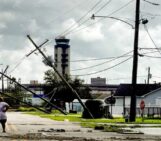
How can we ensure a greener and more equitable future for everyone in the forthcoming years? In this week’s blog, Professor Monica Sanders from Georgetown University and Tulane University shares her thoughts on how and why we need to democratise climate information towards the general public and primarily to the divested communities that are being impacted the most by this global climate crisis.
Climate change is an existential threat that has been affecting the planet for several years, and its impacts have only intensified in recent times. The adverse effects of climate change are felt by everyone, but it is the divested communities in low-income countries who are most vulnerable to its effects. These communities often lack the necessary resources and access to information to adequately address and adapt to climate change. Therefore, democratising climate change information is crucial to ensure that everyone, including those in low-income countries, has access to the knowledge needed to mitigate and adapt to the effects of climate change.
Firstly, democratising climate change information is essential because it empowers divested communities in low-income countries to take necessary action against climate change. These communities are most vulnerable to climate change’s impacts, including rising sea levels, extreme weather events, and prolonged droughts, among others. Yet, they often lack the necessary information and resources to adapt to these changes. When these communities have access to climate change information, they can better understand the changes taking place, assess their vulnerability, and identify ways to mitigate the risks. For example, farmers in low-income countries can use weather forecasts to plan their crop cycles and mitigate losses due to drought or floods.
Secondly, democratising climate change information helps to address the global climate crisis. Climate change is a global phenomenon that affects everyone on the planet, regardless of their location or economic status. Therefore, it is critical that everyone has access to accurate and up-to-date climate change information. For instance, climate change mitigation efforts such as reducing greenhouse gas emissions and investing in renewable energy sources require collective action from individuals, businesses, and governments worldwide. With access to climate change information, individuals and communities can take action and demand accountability from their governments and businesses to mitigate climate change’s effects.
Thirdly, democratising climate change information promotes social justice and equity. In many cases, divested communities in low-income countries are the most affected by climate change but have the least access to information and resources to address it. This creates social injustice and perpetuates the cycle of poverty and vulnerability. By democratising climate change information, we can bridge the gap between those who have access to the necessary resources and those who do not. This helps to ensure that everyone, regardless of their economic status or location, has access to the information and resources needed to mitigate and adapt to climate change.
Furthermore, democratising climate change information can contribute to sustainable development. Sustainable development is the concept of meeting the present needs of society without compromising the ability of future generations to meet their own needs. Democratising climate change information is a crucial step towards achieving sustainable development goals. By providing access to climate change information, we can encourage individuals and communities to adopt sustainable practices and lifestyles, such as investing in renewable energy sources, reducing waste, and conserving natural resources. This, in turn, can contribute to sustainable economic growth and development.
In conclusion, democratising climate change information is essential to ensure that everyone, including divested communities in low-income countries, has access to the information needed to mitigate and adapt to climate change’s effects. By democratising climate change information, we can empower individuals and communities to take necessary action against climate change, address the global climate crisis, promote social justice and equity, and contribute to sustainable development. Governments, businesses, and civil society organisations all have a role to play in democratising climate change information. They can do this by investing in climate change education programmes, ensuring access to climate change information and data, and supporting the development of technologies that facilitate the sharing of climate change information. Ultimately, democratising climate change information is a crucial step towards building a sustainable and equitable future for all.
References Butler, K. A., Jackson, L. A., Kruk, M. C., Merati, N., & Vance, T. C. (2022, December 15). Editorial: Democratising data: Environmental data access and its future. Frontiers. Retrieved March 9, 2023, from https://www.frontiersin.org/articles/10.3389/fclim.2022.1081021/full Falcon, E. (2021, January 12). The FCC and states must ban digital redlining. Electronic Frontier Foundation. Retrieved March 9, 2023, from https://www.eff.org/deeplinks/2021/01/fcc-and-states-must-ban-digital-redlining National Academies of Sciences, Engineering, and Medicine. 2021. Motivating Local Climate Adaptation and Strengthening Resilience: Making Local Data Trusted, Useful, and Used. Washington, DC: The National Academies Press. https://doi.org/10.17226/26261. Sanders, M. C. (2023, February 28). Using a digital justice framework to improve disaster preparation and response. Day One Project. Retrieved March 9, 2023, from https://www.dayoneproject.org/ideas/using-a-digital-justice-framework-to-improve-disaster-preparation-and-response/#footnotes






